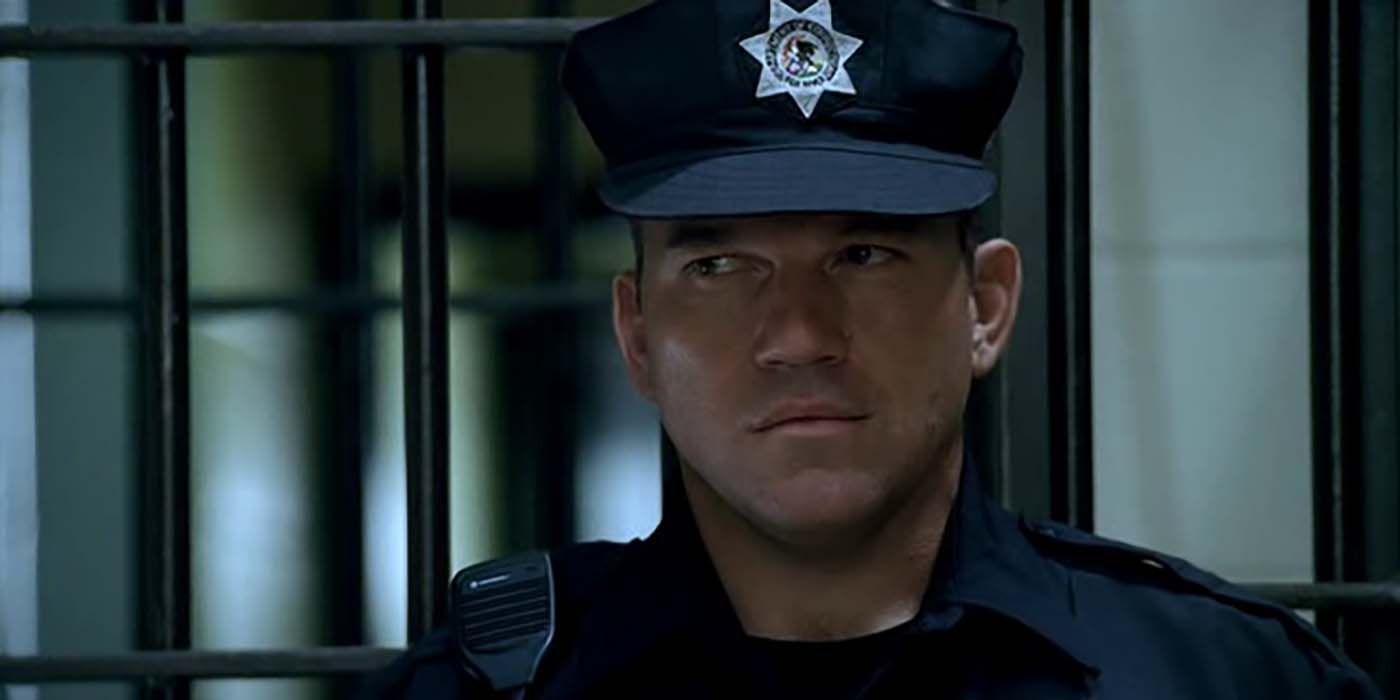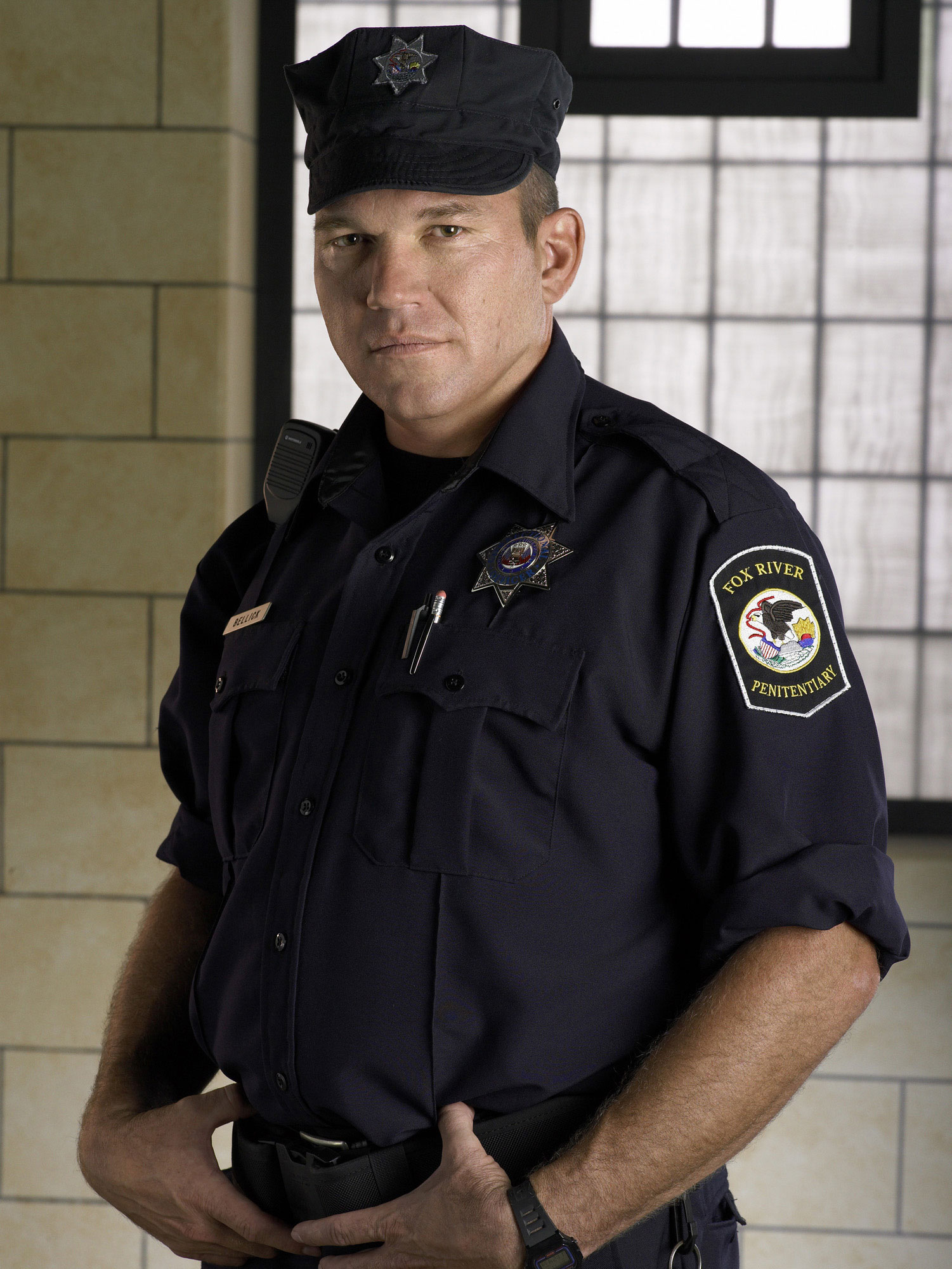Prison Break: Key Moments & The Fate Of [Tweener] Characters
Can a television character truly embody both reprehensible actions and moments of grudging humanity, sparking debate long after the credits roll? The character of Brad Bellick in "Prison Break" remains a compelling case study in morally ambiguous storytelling, leaving viewers grappling with his complexity even years after the series' conclusion.
The world of "Prison Break" thrived on its intricate web of characters, each with their own motivations, flaws, and moments of redemption or despair. Among them, Brad Bellick, portrayed with chilling effectiveness by Wade Williams, stands out as a figure who consistently provoked strong reactions. Initially introduced as a corrupt and sadistic correctional officer at Fox River State Penitentiary, Bellick served as a primary antagonist, his actions often driven by a thirst for power, a disregard for human life, and a seemingly bottomless well of cruelty. His relentless pursuit of the escapees, his willingness to resort to violence, and his general air of smug superiority made him an easy character to despise. However, as the series progressed, a subtle shift occurred, revealing glimpses of vulnerability and prompting viewers to reconsider their initial judgments. This transformation, though never fully erasing his past transgressions, added layers to the character, transforming him from a simple villain into a more complex and, dare it be said, almost sympathetic figure.
The journey of David "Tweener" Apolskis, a supporting character, adds another layer to the narrative. Tweener's introduction in the ninth episode of the series' first season, entitled "Tweener," immediately positioned him as a figure of vulnerability. His backstory, a life touched by the potential of athletic prowess but ultimately undermined by circumstances and poor choices, provided an immediate contrast to Bellick's unyielding brutality. Born and raised in Boston, Apolskis's athletic abilities, especially his great hands, had once earned him a starting position on his middle school's football team. This detail, though seemingly minor, serves to humanize him, providing a glimpse into a life that could have been. His association with Bellick, however, became a catalyst for his downfall. It was Bellick who caused Tweener considerable distress, leading to his eventual decision to escape with Michael Scofield and the other inmates. Ultimately, Tweener's story, though tragically short-lived, underscored the brutal realities of life within the prison system and the devastating consequences of the choices made within its walls.
The narrative of "Prison Break" was always marked by unexpected twists and turns, a key element that kept audiences captivated throughout its five seasons. This penchant for surprise extended to the individual characters as well, preventing them from becoming one-dimensional figures. The inclusion of characters like Nika Volek, originally from the Czech Republic, adds another perspective. Her statement in the episode "First Down" that she had family waiting for her in Kladno provides a reminder of the outside world, a world that the inmates desperately sought to return to. Her marriage to Michael Scofield a day before his arrest, though initially driven by pragmatic concerns, deepened the emotional stakes of his imprisonment. Nika's role, albeit small, highlighted the far-reaching effects of the events within the prison and the sacrifices people made in the name of freedom or survival.
The plot lines of multiple characters converged and diverged throughout the series. Consider the character of Fernando Sucre. Fortunately for the audience, Sucre did not meet an untimely end in "Prison Break". In fact, he experienced a relatively happy resolution by the series' close, adding a touch of hope amidst the bleakness. After being rescued by Bellick and escaping Sona, Sucre was reunited with his and Maricruz's newborn baby. This moment of joy, however, was short-lived as someone called the police, forcing Sucre to flee once again. This constant struggle for survival became a defining theme throughout the series.
The hunt for the five million dollars, money that Charles Westmoreland was in possession of, became a significant plot device. Hidden in the Double K Ranch in Tooele, Utah, the money served as a constant lure, driving the actions of both the protagonists and the antagonists. Bellick's interactions with Westmoreland, his willingness to employ intimidation and violence, exemplify his characters darker tendencies. In a particularly brutal scene, Bellick enters Charles's cell to seek information about Bob. When Charles refuses to divulge any information about Bob because he knows hes a deadman, Bellick resorts to threats, saying "If you don't tell me who killed bob before I leave this cell, our friendship goes with it." He then coldly kills Charless cat, a gesture designed to break Charles down emotionally. His decision to kill the cat highlights his capacity for cruelty and his willingness to use any means necessary to get what he wants.
The story of Bellick's interactions with the other characters continued to add depth. When Sucre makes the phone call to Bellick's mother, fulfilling his promise to do so should anything happen to him, it marked a significant moment. This instance, despite Bellick's terrible actions, brought forth a moment of humanity and the reminder that even the vilest individuals had loved ones. Bellicks actions, however, extended far beyond the confines of Fox River. He found enjoyment in toying with Michael and Lincoln, reveling in his power trips, and demonstrating his narcissistic tendencies. This dynamic showcased the psychological complexity that defined the show's antagonists.
Mahone, another character in the show, frequently stood in contrast to Bellick. However, even if Mahone was a more compelling character, the reality remains that Bellick's flaws were not so different from Mahone. Bellick's actions consistently put him in the wrong light. He was a coward, a bully who relied on authority and intimidation to maintain control. He was exposed at Sona, where he became one of the lowest-ranking inmates, and his character arc was designed to evoke a degree of sympathy in later seasons. The writers were compelled to break him down to earn the viewers' sympathy in the fourth season.
The shows narrative structure cleverly developed Bellick. He initially antagonized Michael, and as the show evolved, he adapted to the new format. As the main characters went on the run and the plot moved away from the prison setting, Bellicks role shifted, becoming more focused on hunting the escapees in hopes of gaining reward money. He believed he had cleared his name, but the reality was far from the truth. He was eventually transferred to a more appalling prison, and even on his way out, he refused to tell Sucre where Maricruz was. His interactions with Tweener, and his actions, further demonstrated his capacity for cruelty. The choice to make Avocado his cellmate after being imprisoned in the second season was a symbol of the character's fall from grace.
The legacy of "Prison Break" extends beyond its captivating storylines and complex characters; it also lies in the performances of its cast. The actors breathed life into the roles. The cast members, including Wade Williams as Brad Bellick, and many others, brought depth to their characters. The shows enduring popularity, even after its initial run on Fox, attests to its gripping narrative, compelling characters, and the questions it continues to raise about morality, justice, and the human condition.
| Category | Details |
|---|---|
| Full Name | Brad Bellick |
| Portrayed By | Wade Williams |
| First Appearance | Episode 1, "Pilot" |
| Last Appearance | Series Finale, "Free" |
| Occupation | Correctional Officer (Fox River), Bounty Hunter |
| Personality Traits | Corrupt, cruel, power-hungry, initially antagonistic, evolving to show vulnerability, capable of brutality, and grudgingly heroic in certain situations. |
| Key Relationships | Michael Scofield (antagonist), Fernando Sucre (rival, later ally), Theodore "T-Bag" Bagwell (frequent adversary). |
| Significant Events | Pursuit of Michael and the escapees, imprisonment at Sona, sacrifice for the greater good. |
| Fate | Dies in the fourth season, sacrificing himself to help the protagonists. |
| Notable Quotes | "I run this place." |
| Reference |
| Category | Details |
|---|---|
| Full Name | David "Tweener" Apolskis |
| Portrayed By | Lane Garrison |
| First Appearance | Season 1, Episode 9, "Tweener" |
| Last Appearance | Season 2, Episode 3, "Dead Fall" |
| Occupation | Inmate |
| Personality Traits | Vulnerable, naive, somewhat arrogant, easily manipulated, and ultimately tragic. |
| Key Relationships | Brad Bellick (antagonist), Michael Scofield (ally), Haywire (cellmate). |
| Significant Events | Escape from Fox River, betrayal, and ultimately, his death. |
| Fate | Killed by Bellick |
| Notable Quotes | "My hands...they're golden." |
| Reference |


